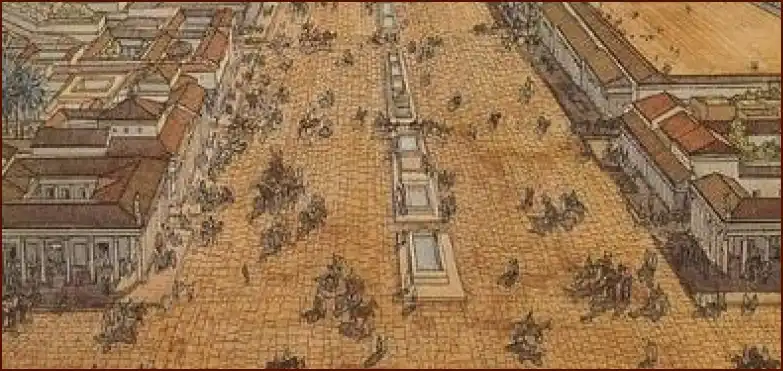After the politically charged, wildly fantastical, and often obscene humor of Aristophanes’ Old Comedy, Greek theater took a dramatic turn in the Hellenistic period. The new dominant form was Hellenistic New Comedy, and its undisputed master was the Athenian playwright Menander (c. 342–c. 291 BC). His plays abandoned political satire in favor of domestic plots, relatable characters, and a gentler, more character-driven humor that has shaped the conventions of comedy down to the modern sitcom.
Table of Contents
To laugh with Menander is to appreciate a different kind of comedy—one focused on the everyday problems of ordinary people. Instead of mocking politicians, his plays explore family conflicts, romantic entanglements, and financial troubles, all within a recognizable social world.
👨👩👧👦 A Focus on Domestic Life
Unlike Old Comedy, which was deeply tied to the specific political events of 5th-century Athens, New Comedy was designed to be universal. With the Greek world expanding, playwrights needed stories that could resonate with audiences from Athens to Alexandria. Menander achieved this by focusing on the private lives of bourgeois families.
The plots of New Comedy revolve around common domestic situations:
- A young man falls in love with a girl of unsuitable social standing.
- A stern father or guardian stands in the way of the young lovers.
- A long-lost child is discovered, resolving a major obstacle to a marriage.
- Mistaken identities and convenient coincidences drive the plot toward a happy resolution.
This focus on the household and family relationships made the plays relatable to a wide audience and allowed for export across the Hellenistic kingdoms.
🎭 The Rise of Stock Characters
Menander’s plays are populated by a cast of recognizable character types, which became staples of the comedic tradition. While these are “stock characters,” Menander imbued them with a new level of psychological realism and humanity, making them more than just one-dimensional caricatures.
Some of the key figures you’ll meet in New Comedy include:
- The Clever Slave: Often the most intelligent character on stage, who devises elaborate schemes to help his young master.
- The Lovesick Young Man: The passionate but often helpless protagonist who needs assistance to win the girl of his dreams.
- The Stern Father (*Senex*): An authority figure, often a grumpy old man concerned with money and reputation, who must eventually be won over.
- The Boastful Soldier: A swaggering mercenary who has returned from war with an inflated sense of self-importance.
These characters and their interactions create a gentle, sympathetic humor that focuses on the foibles of human nature. The discovery of a complete play by Menander, the *Dyskolos* (The Grouch), in 1958 confirmed his reputation as a master of character and plot, revealing a form of comedy built on charm and wit rather than biting satire.
More Topics
- How Philosophy Influenced Hellenistic Writing
- How to Understand the Hellenistic Book Roll
- How to Read Hellenistic Didactic Poetry
- How Literary Rivalry Shaped Hellenistic Poetry
- How to Appreciate Hellenistic Women Poets
- How Scholarship Became Literature in the Hellenistic Era
- How Royal Patronage Shaped Hellenistic Literature

